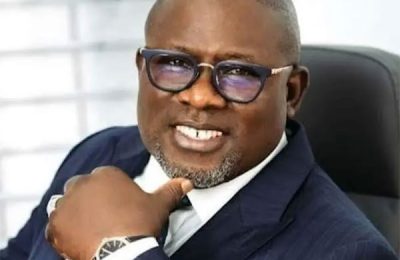

I T is indeed a privilege to see the end of 2022, the year of innumerable canny and uncanny experiences. Thanks be to the Almighty God. On a hearty side, the year 2022 can be likened to purgatory. In the teachings of the Catholic Church, purgatory exists, and it is taught to be a place of suffering where souls wait for purification or expiation of their sins before moving on to heaven.
In that regard, this year that is ending today is to Nigerians what purgatory is to Catholics. The first reason is because Nigerians have seen and are still seeing shege in most facets of the country’s sociology-economic life. In purgatory, people suffer. Then there is that hope of receiving mercy and moving on to heaven − the parody of the coming 2023 elections, where the Nigerian electorate hope to snatch the country from the vice-like grip of a band of soulless administrators and politicians and move to Eldorado. In a nutshell, 2022 was that year of pain, transition and hope. Hope because we would be done with this drudgery called the Buhari administration and because it is believed that “the darkest part of the night is just before the dawn.”
One of the numerous instances of the canny experiences which resonated with Nigerians in 2022 was the Central Bank of Nigeria’s (CBN’s) cashless politics, or − put differently and summarily − the cashless policy. The policy as espoused by the CBN was a beautiful monetary control idea, and well-crafted fiscal directive and guide. It was beautifully wrapped and carefully presented to Nigerians with the label ‘cashless policy’. It was also thought to be timeous.

CBN governor, Mr. Godwin Emefiele, announced the policies with the contention that they came as a means to sanitize our cash environment and bring our fiscal life under further, better control. But to a section of Nigerians viewing the man and his moves with the eyes of politics, this move is like the snake wrapped and presented to the country as a straightforward policy. Their bully pulpit is the fact that weeks after the policy came into effect, the commercial banks are still without the new Naira notes and their ATMs are still dispensing the old notes. Thus, those not comfortable with the policy have the same standpoint with Nigerians from whom the commercial banks receive the old notes and to whom they return the same old notes. The new notes are as scarce as the feaces of a masquerade; and to the people with a skew to their view of the CBN policy, this is like gifting them the snake.
‘The snake’ came from the mid 1960s and early 1970s during a currency crisis in Europe. That time, ‘snake’ as a word in their economic dealings became trite among the people in that part of the world. Some economic experts blamed the weakening of Europe by the currency turmoil on “the devaluation of the French franc and the upward revaluation of the German mark.” One other cause of the European currency crisis according to the experts should resonate with Nigeria in a remarkable way: “The collapse of the Bretton Woods International Monetary System destabilised European markets.” To solve these problems, the German Minister of Finance (1966-1969) and Minister of Economic Affairs (1970-1972), Karl Schiller, proposed what many saw as a rigorous monetary stability policy, possibly an offshoot of his theory, “Concerted Activity (KonzertierteAktion)” with which he successfully reflated the local economy of his home country. Schiller’s idea was taken as the best to a quick attainment of fiscal stability in the European Economic Community (EEC). The “European Currency Snake” became effective in April 1972 and confined the participating countries in strict monetary margins, hence the snake.
These sound familiar − reflation of the economy, fiscal policies and strict monetary guidelines, etc… Then, there must be cause to kick. The elections are literally upon us and we are still battling with how much cash we can withdraw at a go in a bank, and in which denomination of the currency. The job of the bank account officers or managers would be made more difficult soon, except something is done or the CBN listens to the National Assembly, especially the Senate. Or, how would a manager tell his rich politician-customer that he cannot get the requisite amount of cash for him or her? Nigeria does not run on that kind of plain lanes. There are different strokes for different folks − there are different rules for different goons. For instance, banks do not work on Saturdays and Sundays. It is the rule that they do not open to customers at weekends. But that rule only applies to you and I and millions others at this side of the economic divide.

Once, a man visited his rich politician-friend in Ada community in Osun State. It was Saturday afternoon. When the man was about to leave, the wealthy friend was preparing for a golf game. He wished to give his departing friend some cash gift but complained that he had not got cash. “Please just wait let me run around for some cash,” he pleaded with his friend, knowing that the man would be driving to Ibadan. But he did not do any physical running around. All the rich man did was to make a phone call while they were still in the room and he was gathering his golfing paraphernalia. While they talked and laughed, he kept reminding his friend that the people he called via the telephone would soon arrive in Ada. And soon they did arrive in a Toyota Corolla car. That car was synonymous with commercial banks in Nigeria. His friend knew right away that he had called his bankers and that the bankers had brought cash to him at his remote location at about 4pm on a Saturday. With cash withdrawal limits and sundry rules, how would we not witness circumvention of the rules? How would politicians ‘mobilise’ for the elections? Should they surrender the cash with them, how would they operate in the campaign period and how would they ‘prosecute’ the elections? What is the guarantee that the new currencies have not been siphoned from the banking system by the people with ‘long legs’? Who are those ‘spraying’ the new currency at parties? This is indeed cashless politics.

The cashless policy and its humongous politics have turned out to be a form of monetary rigmarole that has somehow brought the best out of Nigerians. They have continued to ask questions and get more answers that are more confusing than reasonable. As it is known with Nigerians, they have shown shrewdness and good judgement in following through and believing that the government meant well with this late-hour cash and fiscal shenanigans. However, the entire policy and its implementation so far have left us more bewildered than guided.
Thankfully, 2022 is over. We pray for a better 2023. We should thus work towards it by all means legally permissible and necessary. We do not want another year of a scam government – a government that is wired to deceive. We do not want a government that would only pay lip service to security of life and property, including stoning of people for expressing opinions. We don’t want another episode of gunmen invasion of St. Francis Catholic Church, Owo, or any of our churches or mosques for that matter.
Preparatory to 2015, we witnessed betrayals and backstabbing, but we do not want to continue to see politics of division as exemplified by PDP while the APC sadly plummets in Nigerians’ rating and reckoning.
We pray for a Happy NEW YEAR.
YOU SHOULD NOT MISS THESE HEADLINES FROM NIGERIAN TRIBUNE
PICTORIAL EXPLAINER: How To Identify Fake New Naira Notes
The Central Bank of Nigeria (CBN) has released security features to help identify fake new naira notes. According to CBN’s template, the Security features to look out for are the following…
Ondo Councils’ Workers Shut Down Assembly Over LG Autonomy
LOCAL government workers under the aegis of Nigeria Union of Local Government Employees (NULGE), Ondo, on Tuesday, stormed the State House of Assembly, threatening a showdown with the lawmakers over the signing of local government autonomy…
The Federal Government is putting the final touches to all necessary measures to stop cash withdrawal from federal, state, and local government accounts. The Director/Chief Executive Officer of the Nigerian Financial Intelligence Unit (NFIU), Modibbo Hamman Tukur, revealed…
The House of Representatives on Tuesday unveiled plans to investigate the allegation bothering on the alleged loss of over $2.4 billion in revenue accruing from the illegal sale of 48 million barrels of crude oil export from 2014 till date…
LEADING rights lawyer, Mr. Femi Falana, on Tuesday addressed the controversial move by the nation’s secret police to arrest and detain the embattled Governor of the Central Bank of Nigeria (CBN), Godwin Emefiele…
As a follow-up to its redesign of the N200, N500, and N1000 banknotes, the Central Bank of Nigeria (CBN) recently announced a new policy that mandates deposit money banks and other financial institutions to ensure that…








